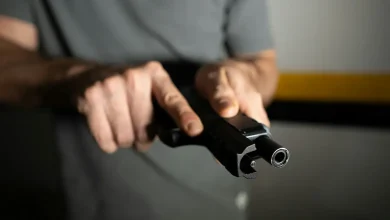The money and power got better. You know, you’re right – I began to love the lifestyle. I was caught up. “
This is the testimony of Morgan Corley. A man who has spent most of his adulthood behind bars, Morgan Corley has turned prison into a place where he can play a game.
In the public’s imagination, prison is either an unwelcoming, dark warehouse of punishment or a cold waiting room where redemption can be found. For others, such as Corley, it becomes something entirely different–a staging of ambition, commerce and power.
Morgan Corley can only be understood by looking beyond the bunk beds and bars. The inside of a prison is where the rules are fluid and alliances are transient. Survival doesn’t mean just staying safe, but also being relevant.

The Hustler’s Code: Profile of Inmate Morgan Corley
Morgan Corley did not stumble into the underground world of prison by accident. According to his account, it seemed almost natural, an extension of a lifestyle that revolved around hustle, risk and reward.
“I get involved with people who do things that the institutions won’t tolerate. I make money by doing a lot with cell phones and the drug trade. I like to earn money .”
Corley’s voice is not remorseful, and there are no half-hearted pleas for redemption. He is adamant. This is a business. This is business.
Corley’s hustle relies not only on goods but also on influence. He has leverage, which is something most prisoners don’t have. In a prison where everything is up for negotiation, from food portions to the availability of power outlets, leverage is key.
An Empire in Miniature
Wealth is visible in the free world through watches, cars and homes. Wealth in prison is less obvious, but no less powerful.
Corley operates what one might call a Micro-Economy. He employs other prisoners in a sort of shadow government.
You know what I’m talking about? “I have a man who works in the kitchen. I give him 4 soups, and I get 2 sandwiches. This will be his salary. I pay $7.50 per week to my laundry man because I like my clothes folded and pressed, and placed on my bed each day. I have a guy who buffs my floors – that is about $1.50 per week. A guy comes to make the beds and clean my house every day. I pay him $1 a day .”
Hierarchy is power. Hierarchy is power.
Corley, a former prisoner, has developed comfort. Not freedom but a close approximation of autonomy.
This is a prison that has been gentrified. In a place of supposed absolute institutional control, this autonomy is itself a revolt.
A man with a Reputation
I’ve been moved 16 times, so I have been in 16 prisons. I’ve been around many inmates, so several people know or know about me.”
Prison officials use transfers to break up influence, to dismantle gangs and networks, or power bases. Corley’s transfers have done the exact opposite. Each transfer increased his brand, like a travelling salesman.
Sixteen prisons. Sixteen new markets.
He is not just another prisoner. He’s known. In prison, a good reputation can be as valuable as gold. It can be a sign of protection, an opportunity to gain experience, or fear. In Corley’s situation, it was a bit of all three.
Corley is not one of those inmates who keep quiet. He speaks out about his strategies. He does not claim innocence. He does not present himself as the victim of a system.

“I admit nothing. “I never admit to anything.
This is not denial. That’s discipline. The truth is currency in prison, and it can be dangerous if you spend it freely. Corley’s refusal, even when caught by the police, to confess is not about pride, but about the rules of the game. What is rule number one? Don’t talk.
Power and its Value in a World That Takes it Away
It’s a cruel paradox that prisons are designed to erase identities, but they also create environments in which new identities can flourish. Inmates such as Corley reinvent themselves, not as reformed individuals but as powerful brokers.
It’s not only how Corley behaves, but also how normalised his life has become for him.
This is about as good as you can get it in here.” It’s about the best you can do in here .”
50 dollars per week in prison is not a small sum. This shows the size of his operation and how far he reaches. The inmates who clean his floor, press his clothes and bring him sandwiches are all cogs of a machine that he has built.
They also gain. Working for Corley could be the best job in a town with few options.
His micro-empire offers something that the prison system cannot: purpose. Jobs. Roles. Unofficial hierarchy is often more efficient than official bureaucracy.
Is this a symptom or a survival?
Some see Corley as a symptom of a broken system, a man who’s learned to thrive in an environment meant to punish. Corley is a man who has not been reformed but simply moved his hustle from the street to the prison cellblock.
Others see him as doing what any person would do in the same situation: adapting and building a new life in an environment that was not designed for human habitation.
No easy answers to this problem.
Prison reform advocates argue that the existence of inmates like Corley proves how ineffective the penal system is at achieving its supposed goal–rehabilitation. If an inmate can live so well despite the system, then does it not mean that the system is failing?
Corley may not be a testament to failure or success. He could be a mirror reflecting the complexity of prison life, including how rules are bent, power is shifted, and even the most restrictive environment can provide a way for some people to succeed.
The Bigger Picture: Beyond Corley
Corley is not the only one with an entrepreneurial spirit. While he may be exceptional at organising, his business sense is not. In prisons across the U.S., informal economies flourish: stolen cellphones are lifelines, and hustlers provide services.
Barbers, tattoo artists, chefs, paralegals, and even enforcers are all part of the grey area between rules and reality. They all operate in the grey area between reality and rules.
This underground economy is not just there; it thrives because it fills needs that the institution ignores. In order to meet these needs, Corley and other inmates have carved out a strange kind of freedom.
Not everyone has Corley’s connections or resources. His story reveals a deeper truth, however: prisons are not blank slates. Concrete walls don’t equalise all men. Like the outside world, there are power struggles, ambitions, and survival.
Final thoughts: Who is Morgan Corley?
Is he the mastermind of a crime syndicate? Is he a product of his surroundings? A manipulator? A leader?
Or none. Or none.
Morgan Corley is a master of a system designed to control him. He has found a means to survive and even thrive in a world that is dominated by people who are trying to get through the day.
While the ethics of Corley’s hustle are certainly open to debate, its reality cannot. Corley’s prison experience isn’t the end; it’s just a new arena. It has its own rules and currency. For those who understand how to play, it can be rewarding.

Postscript: A System in Question
Morgan Corley’s story raises the question: What do we want prison to look like?
How can we explain Corley’s success when he seems to use his incarceration as an opportunity if it is meant to punish?
What structures are there to offer inmates real hope for the future?
If it’s just meant to contain, are we okay with the contents?
No simple solutions exist. We can’t ignore stories like Corley as long as they exist.
Behind the fluorescent lights and locked doors, there is still life happening. Deals are made. Building empires of all sizes is taking place.
Men like Morgan Corley don’t just survive; they run the yard.




